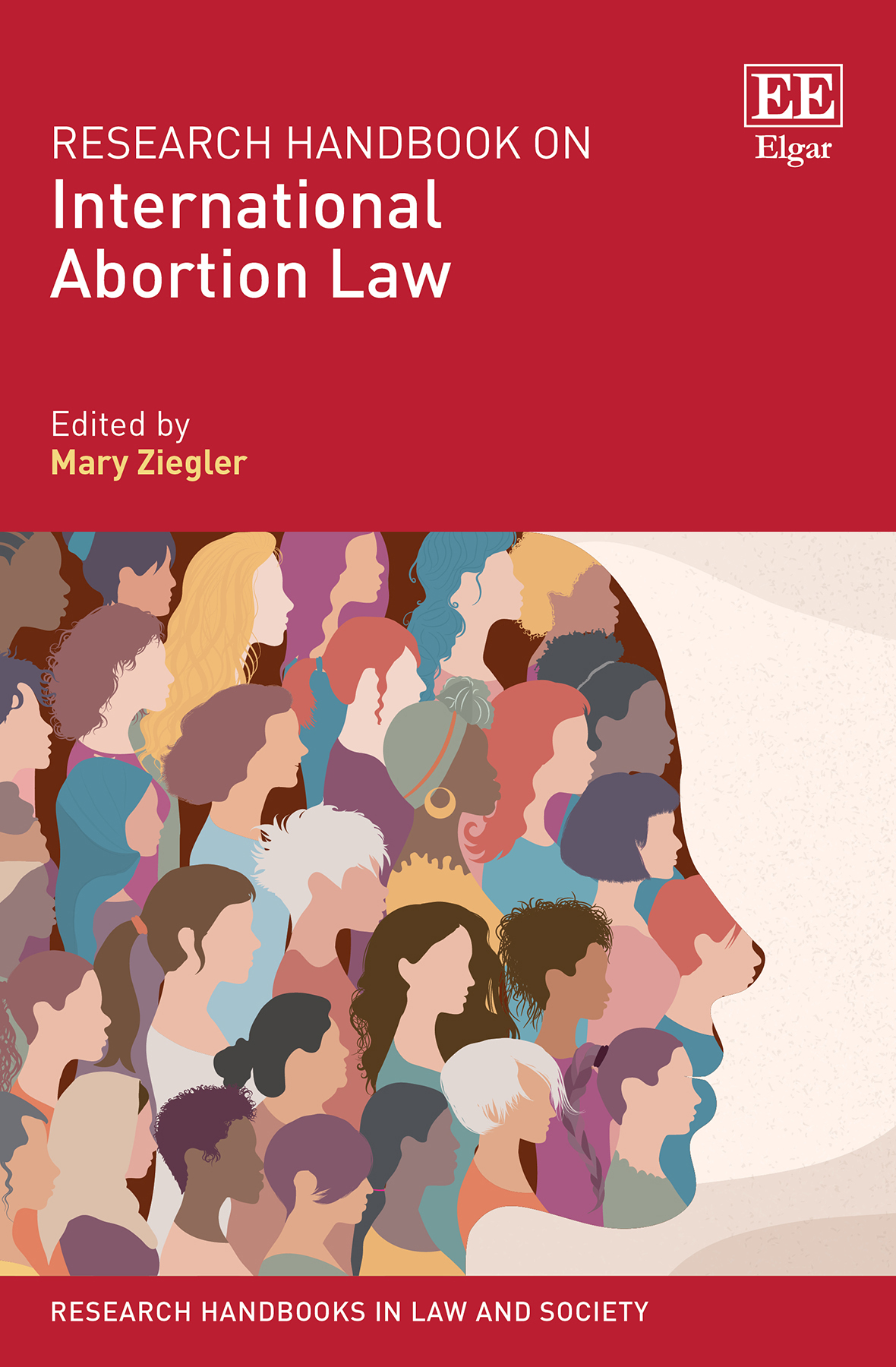Views
Book review: Research Handbook on International Abortion Law (Cheltenham: Edward Elgar Publishing, 2023)

Written by Mayela Celis
Undoubtedly, Abortion is a hot topic. It is discussed in the news media and is the subject of heated political debate. Indeed, just when one thinks the matter is settled, it comes up again. In 2023, Elgar published the book entitled “Research Handbook on International Abortion Law”, ed. Mary Ziegler (Cheltenham: Edward Elgar Publishing Limited, 2023). For more information, click here. Although under a somewhat misleading name as it refers to international abortion law, this book provides a wonderful comparative overview of national abortion laws as regulated by States from all the four corners of the world and internal practices, as well as an analysis of human rights law.
This book does not deal with the conflict of laws that may arise under this topic. For a more detailed discussion, please refer to the post Singer on Conflict of Abortion Laws (in the U.S.) published on the blog of the European Association of Private International Law.
In this book review, I will briefly summarise 6 parts of this book (excluding the introduction) and will provide my views at the end.
PIL and (De)coloniality: For a Case-by-Case Approach of the Application of Postcolonial Law in European States
Written by Sandrine Brachotte who obtained a PhD. in Law at Sciences Po, Paris and is a Guest Lecturer at UCLouvain (Saint-Louis, Brussels).
1. PIL and (De)coloniality in Europe
This post follows Susanne Gössl’s blog post series on ‘Colonialism and German PIL’ (especially s. 3 of post (1)) and offers a French perspective of the issue of PIL and (de)coloniality – not especially focused on French PIL but based on a francophone article to be published soon in the law and anthropology journal Droit et Culture. This article, called ‘For a decolonisation of law in the global era: analysis of the application of postcolonial law in European states’, is addressed to non-PIL-specialist scholars but builds on a European debate about PIL and (de)coloniality that has been nourished by scholars like Ralf Michaels, Horatia Muir Watt, Veronica Ruiz Abou-Nigm, as well as by Maria Ochoa, Roxana Banu, and Nicole Štýbnarová, notably at the occasion of the 2022 Edinburgh conference (reported about on this blog, where I had the chance the share a panel with them in relation to my PhD dissertation (see a short presentation on the EAPIL blog)).
The Dubai Supreme Court on the Enforcement of Canadian (Ontario) Enforcement Judgment
Can an enforcement judgment issued by a foreign court be recognized and enforced in another jurisdiction? This is a fundamental question concerning the recognition and enforcement of foreign judgments. The answer appears to be relatively straightforward: “No”. Foreign enforcement judgments are not eligible to be recognized and enforced as they are not decisions on the merits (see in relation with the HCCH 2019 Convention, F Garcimartín and G Saumier, Explanatory Report (HCCH 2020) para. 95, p. 73; W Hau “Judgments, Recognition, Enforcement” in M Weller et al. (eds.), The HCCH 2019 Judgments Convention: Cornerstones, Prospects, Outlooks (Hart 2023) 25). This is usually referred to as the “prohibition of double exequatur” or, following the French adage: “exequatur sur exequatur ne vaut”. This question was recently presented to the Dubai Supreme Court (DSC), and its decision in the Appeal No. 1556 of 16 January 2024 offers some useful insights into the status foreign enforcement (exequatur) decisions in the UAE.
News
New General Editor
ConflictofLaws.net is happy to announce Saloni Khanderia from Jindal Global Law School as our new General Editor. Saloni joined the blog’s Editorial Board in 2019 and has been an active contributor ever since. She takes over from Jeanne Huang (University of Sydney) and will serve as the blog’s General Editor together with Tobias Lutzi (University of Augsburg).
The Editorial Board is indebted to Jeanne for her over two years of service as General Editor. During her tenure, important changes have been implemented regarding the blog’s operation, including the redesign of our frontpage with the new calendar feature. At the same time, our community has continued to grow to more than 2,5k subscribers of our e-mail newsletter and 5k followers on LinkedIn. We’re deeply grateful for the time and energy she has dedicated to the blog and are delighted that she will stay on the Editorial Board.
Reminder: CoL.net Virtual Roundtable on the Rome II Report (11 March, 12pm CET)
On Tuesday, 11 March 2025, 12pm CET, ConflictofLaws.net will be hosting an ad-hoc virtual roundtable on the Commission’s Rome II Report.
Everyone interested is warmly invited to join via this Zoom link.
More information can be found here.
HCCH about to establish Regional Office for Africa (ROAF)
As was mentioned before on this blog, increasing the participation of African states in the HCCH appears to be the most promising avenue to strengthen judicial cooperation on the African continent in the context of intracontinental, interregional as well as global judicial integration. Following several unsuccessful attempts to establish a physical presence on the African continent,[1] the HCCH Council on General Affairs and Policy (CGAP) has now warmly welcomed the Kingdom of Morocco’s proposal to host and, perhaps most importantly, entirely fund a HCCH Regional Office for Africa (ROAF) in Rabat.[2] Read more




